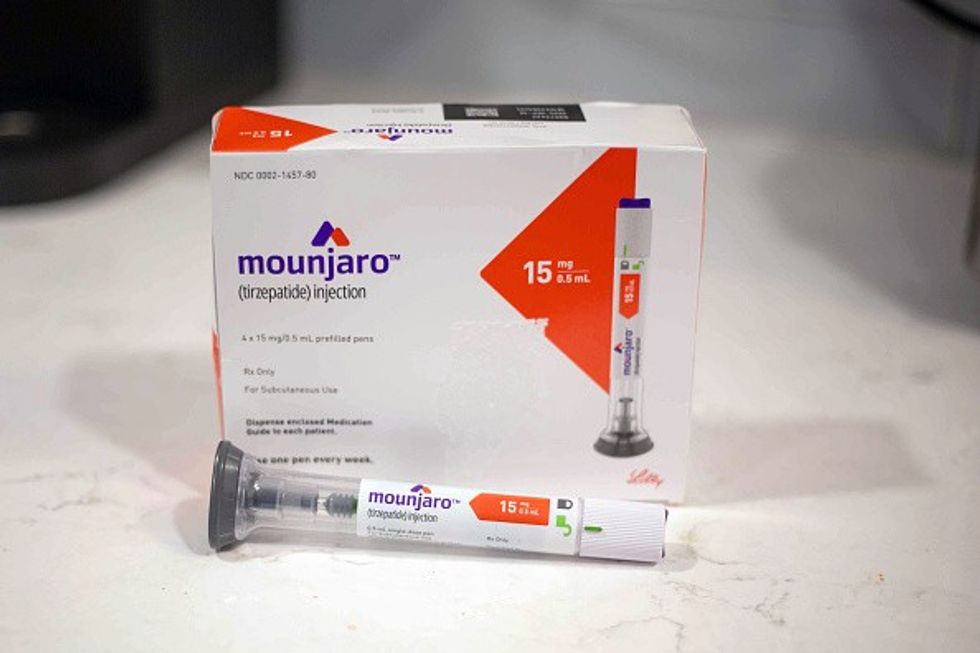Nicola Stockmann highlighted that the role of pharmacy technicians should not be interpreted as "simply freeing up time for other healthcare professionals"
President of the Association of Pharmacy Technicians UK (APTUK), Nicola Stockmann, has underscored the need for pharmacy technicians to "be recognised as the regulated autonomous healthcare professionals they are", especially since the legislative change.
Historically, the pharmacy technician's role has primarily centered on medicine supply functions such as dispensing and checking which can also be carried out by other non-regulated pharmacy staff members.
Following the legislative change, effective on June 26, 2024, pharmacy technicians gained the ability to administer and supply medicines under Patient Group Directions (PGDs) and can utilise their knowledge and expertise to comprehensively counsel individuals on the proper use of PGD-approved medicines.
In an exclusive interview with Pharmacy Business, Stockmann stressed on empowering and supporting pharmacy technicians (PTs) in practice to hone their skills and broaden their experience.
She noted that while the introduction of new opportunities under PGDs signals continual professional development, the lack of protected time for training could bring potential hindrances in fulfilling the demands of the role.
It should be noted that although no prior qualifications are required for pharmacy technicians to enroll under a PGD, each PGD stipulates specific training requirements.
"Protected time to undertake this (training under specified PGD) will support capacity in delivery and individual continued professional development," Stockmann asserted.
She highlighted the importance of providing adequate training time to interested pharmacy technicians.
Additionally, Stockmann underscored the importance of providing pharmacy technicians with opportunities to practice under PGDs, enabling them to develop their skills and expand their experience.
"(We) already have pharmacy technicians operating in their post-qualification specialisms through improving/streamlining the patient experience.
"The enablement of pharmacy technicians to support the capacity of delivering pharmacy services demonstrates the value that can be added by pharmacy technicians," she explained.
Reiterating the expanding capacity of PTS, Stockmann highlighted that their role should not be interpreted as "simply freeing up time for other healthcare professionals (HCPs), as this undermines the value pharmacy technicians bring to patient care."
"This suggests that another HCP’s time is more valuable. This is incorrect and we undersell the value of pharmacy impact if this is how it is portrayed.
"It is about ensuring the right HCP with the appropriate skillset is providing the right service to patients at the right time."
Unrealistic to 'consider initial qualifications as limits'
In response to a recent criticism made by the Pharmacists' Defence Association (PDA) regarding "clinical pharmacy roles undertaken by technical staff," Stockmann asserted:
"All pharmacy technicians have the potential to develop clinical skills when invested in and supported.
"Pharmacy technicians and Pharmacists are regulated and subject to the same CPD requirements, with roles and responsibilities based in experience and training.
"It is not realistic to consider initial qualifications as limits and to not acknowledge CPD, training and post-qualification experience."
Furthermore, she emphasised that APTUK is committed to recognising pharmacy technicians as integral healthcare professionals, noting their inclusion in strategic plans such as the NHSE long-term workforce plan and Pharmacy Delivering a Healthier Wales.
She also underlined the importance of professional inclusion and respect within pharmacy teams to utilise their vast skillsets effectively.
Promising future!
Stockmann mentioned that they acknowledge the increasing inclusivity of training programmes and research opportunities, now focusing on registered pharmacy professionals rather than distinguishing between pharmacists and pharmacy technicians.
She emphasised that this shift towards professional inclusion and respect is crucial for fostering effective pharmacy teams that appropriately utilise diverse skill sets.
Regarding APTUK, Stockmann noted that it serves as the leading professional body for pharmacy technicians, led by pharmacy technicians themselves, and they expressed pride in its nationwide presence.
" We are pleased that the University of Bath and Pharmacy Workforce Development South are delivering research on the career pathways for pharmacy technicians.
"This has been sponsored by the Conference of Pharmacy Deans. APTUK also has Northern Ireland registration of pharmacy technicians as an organisational priority."









 A Royal College would be beneficial to both pharmacists and patients, said BennettPic credit: iStock
A Royal College would be beneficial to both pharmacists and patients, said BennettPic credit: iStock






 Daniella Fakhouri, director of pharmacy at LIPs
Daniella Fakhouri, director of pharmacy at LIPs Mounjaro (tirzepatide) injections (Getty Images)
Mounjaro (tirzepatide) injections (Getty Images)
